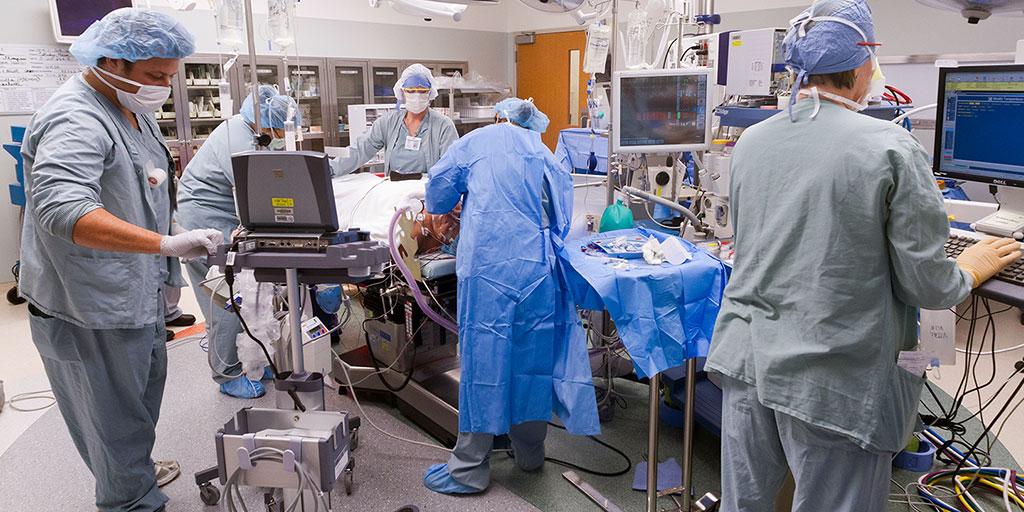
What to Expect from CST Jobs in the Medical Field
When people think about working in the medical field, they often imagine doctors, nurses, or maybe even lab technicians. But there’s another important job that plays a crucial role in patient care: the Certified Surgical Technologist (CST). CSTs are the unsung heroes who help make surgeries go smoothly. In this article, we’ll dive into what CST jobs involve, what you can expect if you’re thinking about becoming one, and why this role is so vital.
What is a Certified Surgical Technologist (CST)?
A Certified Surgical Technologist, or CST, is a professional who assists in surgical operations. Think of them as the right-hand person to the surgeon and surgical team. CSTs are trained to help with various tasks before, during, and after surgery. They prepare the operating room, make sure all the surgical tools are ready, and help the surgical team stay organized throughout the procedure. Their work is crucial to making sure surgeries go as planned and patients are safe.
The Role of a CST in the Operating Room
Before the Surgery: Getting Ready
Before any surgery starts, CSTs have a lot of important tasks. They prepare the operating room by making sure it’s clean and sterile. This means they have to follow strict guidelines to prevent infections. They also set up all the surgical instruments, ensuring that everything the surgeon might need is in its place. This preparation is crucial because it helps the surgery proceed without any hitches.
During the Surgery: Assisting the Team
When the surgery begins, CSTs are right there, assisting the surgical team. They might pass instruments to the surgeon, help with suctioning, or keep track of surgical counts. This means they have to stay focused and be quick on their feet. Their ability to anticipate the needs of the surgeon and other team members is essential for a smooth procedure.
After the Surgery: Wrapping Up
Once the surgery is over, CSTs have more important work to do. They help with cleaning and sterilizing the operating room, ensuring that everything is ready for the next patient. They also make sure that all used instruments and materials are properly accounted for and disposed of. Their work doesn’t end when the surgery does; they play a crucial role in maintaining the standards of the operating room.
Skills and Qualities Needed for CST Jobs
Attention to Detail
Being a CST requires a lot of attention to detail. From setting up instruments to assisting during surgery, every small detail matters. A missed step can have significant consequences, so CSTs need to be meticulous and thorough in their work.
Good Communication
Communication is key in the operating room. CSTs must communicate effectively with surgeons, nurses, and other team members. They need to be able to convey important information quickly and clearly to ensure everything goes smoothly during surgery.
Ability to Work Under Pressure
Surgeries can be high-pressure situations. CSTs must stay calm and focused, even when things get hectic. Their ability to handle stress and remain composed is crucial for ensuring that the surgery goes as planned.
Manual Dexterity
CSTs often handle delicate instruments and assist with precise tasks. Good manual dexterity is important for performing these tasks accurately. They need to be able to work with their hands effectively and carefully to avoid any mishaps.
Education and Training for CST Jobs
Formal Education
To become a CST, you need to complete a formal education program in surgical technology. This typically involves enrolling in a specialized program at a community college or technical school. The program usually takes about 1 to 2 years to complete and includes both classroom instruction and hands-on clinical experience.
Certification
After completing your education, you’ll need to become certified to work as a CST. This involves passing a certification exam administered by a recognized certifying body, such as the National Board of Surgical Technology and Surgical Assisting (NBSTSA). Certification is important because it demonstrates your knowledge and competence in the field. Additionally, you can read more at: Eco Trends Media
Continuing Education
Even after becoming certified, CSTs need to stay updated on the latest developments in surgical technology. This often involves taking continuing education courses and staying informed about new techniques and equipment. Lifelong learning is a key part of the job, ensuring that CSTs remain current and effective in their roles.
Working Conditions and Environment
Hours and Shifts
CSTs often work long hours, and their schedules can vary. Surgeries may be scheduled at different times, so CSTs might work evenings, nights, or weekends. They need to be prepared for the possibility of irregular hours and on-call shifts, depending on the needs of the medical facility.
Physical Demands
The job of a CST can be physically demanding. They might spend long periods on their feet and may need to lift and move equipment. The work requires stamina and physical endurance, as CSTs are often involved in long and complex procedures.
Emotional and Mental Challenges
Working in the operating room can be emotionally and mentally challenging. CSTs are involved in procedures that can be stressful and sometimes life-threatening. They need to be able to handle these challenges while maintaining a high level of professionalism and composure.
Job Outlook and Career Opportunities
Growing Demand
The demand for CSTs is expected to grow in the coming years. As medical technology advances and the population ages, the need for skilled surgical technologists will continue to rise. This means that job prospects for CSTs are promising, with opportunities available in hospitals, surgical centers, and other healthcare settings.
Career Advancement
There are various opportunities for career advancement within the field of surgical technology. Experienced CSTs might choose to specialize in a particular area of surgery or take on leadership roles within their teams. Additionally, some CSTs may choose to pursue further education and transition into roles such as surgical first assistant or nurse.
Challenges and Rewards
Challenges
Like any job, working as a CST comes with its challenges. The work can be physically demanding and emotionally intense. CSTs must also stay sharp and focused during long procedures, which can be tiring. Additionally, they must adapt to rapidly changing situations and be prepared for unexpected challenges.
Rewards
Despite the challenges, the role of a CST is highly rewarding. CSTs play a crucial role in patient care, helping to ensure that surgeries are performed successfully and safely. The satisfaction of contributing to positive patient outcomes and being an integral part of a skilled surgical team can be immensely fulfilling.
Conclusion
In summary, CST jobs in the medical field are both challenging and rewarding. As a CST, you’ll be involved in every aspect of the surgical process, from preparation to post-surgery clean-up. You’ll need a variety of skills, including attention to detail, good communication, and the ability to work under pressure. The job requires formal education and certification, and ongoing learning is essential to stay current in the field. While the work can be demanding, it also offers the chance to make a significant impact on patient care and contribute to successful surgical outcomes. If you’re considering a career as a CST, you can look forward to a fulfilling role with plenty of opportunities for growth and advancement.







